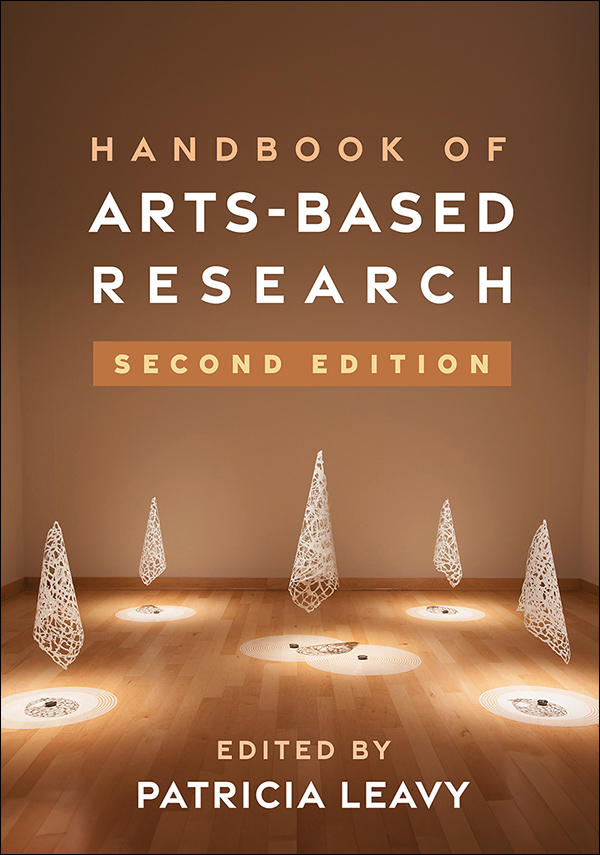Handbook of Arts-Based Research
Second Edition
Edited by Patricia Leavy
Hardcovere-bookprint + e-book
Hardcover
orderFebruary 18, 2025
ISBN 9781462551187
Price: $105.00 824 Pages
Size: 7" x 10"
e-book
orderJanuary 29, 2025
PDF and Accessible ePub ?
Price: $105.00 824 Pages
ePub is Global Certified Accessible
print + e-book $210.00 $126.00
orderHardcover + e-Book (PDF and Accessible ePub) ?
Price: 824 Pages
ePub is Global Certified Accessible
Read a Q&A with featured author, Patricia Leavy!
Sign up for emails on upcoming titles by Patricia Leavy (with special discounts)!
Sign up for emails on upcoming titles by Patricia Leavy (with special discounts)!
The first methods handbook devoted solely to arts-based research (ABR) is now in a thoroughly updated second edition, featuring a new section on global perspectives plus new chapters on critical approaches and documentary film. The volume explores the synergies between contemporary artistic and research practices and addresses issues in designing, implementing, evaluating, and publishing ABR studies. Chapters are written by leading practitioners of each ABR genre, including those based in literature (such as narrative inquiry, fiction, and poetry); performance (music, dance, ethnodrama); visual arts (drawing, painting, collage, installation art, comics); and audiovisual and multimethod approaches. Team approaches, ethics, social justice concerns, and public scholarship are discussed, as are innovative ways that ABR is used within creative arts therapies, psychology, education, sociology, health sciences, and other disciplines. The companion website includes selected figures from the book in full color, additional online-only figures, and links to online videos of performance pieces.
New to This Edition
New to This Edition
- Updated throughout with current research, theory, and ABR examples.
- Chapters on critical approaches to ABR and on documentary film.
- Chapters on ABR projects in Taiwan, Japan, and the United Kingdom.



